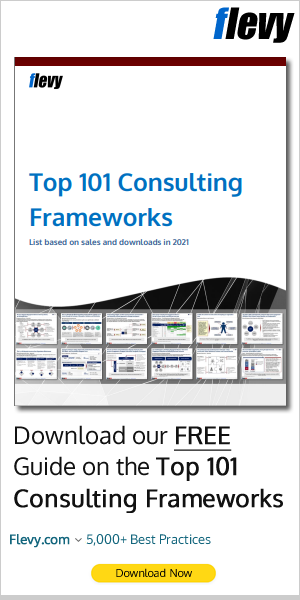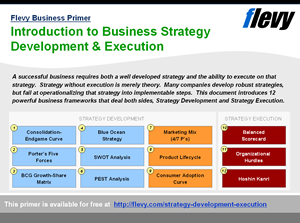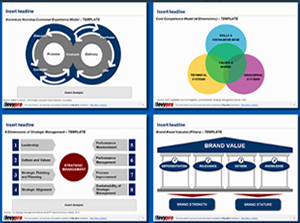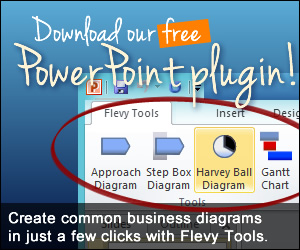Editor's Note: Take a look at our featured best practice, Leadership Competency Model (25-slide PowerPoint presentation). Behavioral competencies have long been utilized across many organizations to assess the competencies and potential of leaders. The competency models are prevalent due to several reasons--shared vocabulary to express the expectations from people, a basis for performance management planning, clarity [read more]
Leadership across Cultures!
Also, if you are interested in becoming an expert on Organizational Leadership (OL), take a look at Flevy's Organizational Leadership (OL) Frameworks offering here. This is a curated collection of best practice frameworks based on the thought leadership of leading consulting firms, academics, and recognized subject matter experts. By learning and applying these concepts, you can you stay ahead of the curve. Full details here.
* * * *

Globalization and digitization turned the world into a small, concentrated community where we have to collaborate and communicate on a daily basis with different people from different cultures. An effective Leadership, in this regard, is about incorporating these differences as part of the management, understanding them, and adopting the right attitudes to overcome cultural biases and misperceptions. When working in a highly diverse environment, then intercultural consideration becomes fundamental without which our competencies and skills may go non sense.
The aim is neither to display tolerance and understanding on our faces nor to limit them into a list of values at the entrance of the organization’s building. The main goal of a positive leader is to embrace them on a daily basis and attain them from inside. It should be aligned with his values and human qualities, which will depend also on his level of emotional intelligence. A leader operating at a global level needs to prove to have these traits and qualities apart from his professional responsibilities.
Cultural intelligence will rely on your ability to dig into a contextual understanding of the differences of cultures, and your capacity to adapt your plans and behavior accordingly. Many sociologists and anthropologists wrote about this field, and their approaches differ from one to another. Edward T.Hall founded the intercultural communication in 1959 with his book The Silent Language. He defines intercultural communication as “a form of communication that shares information across different cultures and social groups. One framework for approaching intercultural communication is with high-context and low-context cultures, which refer to the value cultures place on indirect and direct communication.”
High-context cultures include Asian, African, Middle East, Central European, and Latin American cultures. The rules of communication, in this case, are primarily transmitted through the non-verbal and are stated implicitly as the communication is less direct. Nonverbal elements such as voice tone, gestures, facial expression, and eye movement are significantly important. However, verbal communication is often implicit, and communication is seen as a way of engaging others. A message will be understood only with a great deal of background information. Relationships are built on trust, and productivity is dependent on the quality of relationships with people with more sensitivity to the feelings and the body language. Social structure and authority are centralized. Space is communal. People are comfortable in standing close to each other or sharing the same space.
Low-context cultures include countries like US, UK, Canada, Germany, Norway, Australia, Switzerland, etc. Good effective communication in a low context culture should be explicit, simple, precise, and straight forward. The verbal gets over the non verbal and few things is left to interpretation. The primary purpose of communication is the exchange of information, facts, and opinions. Productivity depends on clear procedures and written follow up. Someone from a low-context country like the US, will find it normal to make a written recap after a meeting or a conference call, and send it by email while it may be perceived as a lack of trust in a high context-culture like Egypt. Social structure is decentralized and privacy is crucial.
There are a variety of other approaches, and books which further discuss this field. Communication is just one aspect among many other ones to be considered in a multi-cultural environment. Being aware of them is not what will enable you to lead with cultural intelligence. This latter is not a mission or a goal to accomplish to be successful, but an inner value that you need to develop to communicate effectively at different levels. It will enable you to lessens biases, create trust, empower the team, and allow constructive feedback. The emphasis should be on understanding, connecting, and appreciating others’ backgrounds. It is also about enjoying, sharing, and respecting each one’s differences.It is about being sincere, tolerant, and willing to embrace these differences. If you cannot reach simple things from inside, it will be difficult to bring value at the workplace.
Observe the environment you are in. Be aware of people’s cultures, habits, values, and norms before engaging in a meeting, a trip or a business agreement. Develop your emotional intelligence, and empathy. Be intuitive to decode signals, and create great interactions based on trust through accepting other differences. Encourage feedback and opinions as you don’t need to wait the annual period of evaluation to give yours. Leadership is not about one shot action, but it is built through constant, regular, and trustworthy actions. This way, you will be already leading with cultural intelligence. Most of all, the more tolerant you are and understanding towards others, the more others will be tolerant and transparent towards you.

Want to Achieve Excellence in Organizational Leadership (OL)?
Gain the knowledge and develop the expertise to become an expert in Organizational Leadership (OL). Our frameworks are based on the thought leadership of leading consulting firms, academics, and recognized subject matter experts. Click here for full details.
For both the current executives and leaders of tomorrow, our frameworks address 2 facets of Leadership:
1. How to elevate your management skills to becoming a Leader in your organization.
2. How to elevate your organization to becoming the Leader in your Industry.
Learn about our Organizational Leadership (OL) Best Practice Frameworks here.
Readers of This Article Are Interested in These Resources

|
|
246-slide PowerPoint presentation
|
|
107-slide PowerPoint presentation
| |||
Top 10 Recommended Documents on Leadership
» View more resources Leadership here.
» View the Top 100 Best Practices on Flevy.













